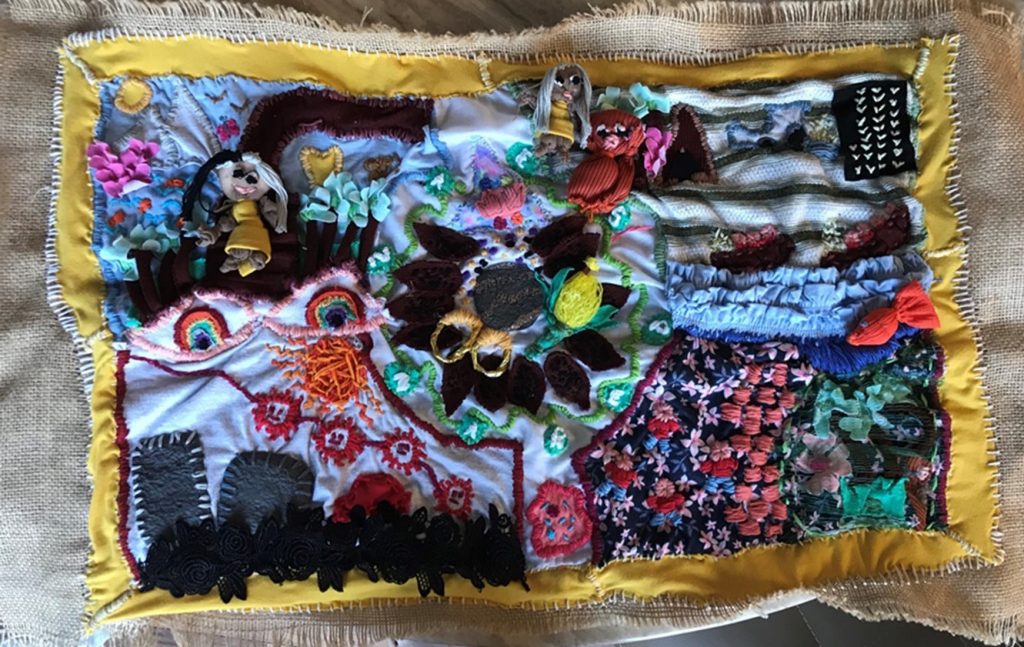This post is part of our Research Initiation Scheme for 2021-2022.
On Friday 10th December 2021, Dr Fiona Clark (Senior Lecturer in Latin American Studies at Queen’s University Belfast) delivered a seminar entitled ‘Sewing Thoughts Together: Pandemic, Texts, and Textiles’ at the 2021-2022 Modern Languages Core Disciplinary Research Group Seminar Series. Dr Clark’s seminar analysed the interactions between art, environmental justice, health and wellbeing, reflecting on how Level 3 students in the Protecting Paradise cursillo (mini-module) have used their personal experiences as inspiration for creative work.

Dr Clark opened up the seminar with an overview of the arpillera, a Chilean textile art form. The word arpillera is used for sackcloth in Spanish. This material was used to package coffee beans, potatoes and flour. From this humble background grew the arpillera textile art form used by Chilean women in the 1970s to capture their experiences of loved ones who were disappeared during the Pinochet dictatorship. Since many of these women were from the poorer end of the social classes in Chile, re-using sackcloth and other materials from around the home (such as school uniforms and old shirts) made this art form accessible and personal through the introduction of materials from the disappeared loved ones. The materials were arranged and sewn together to create an image. Many of these arpilleras reflect on a violent political regime, which Dr Clark later related to the idea of ‘craftivism’: using handcraft as a form of activism. Arpilleras also served as a way to keep alive the memories of loved ones. Dr Clark explained how women would gather together to sew and tell stories. In this way, textiles were used as a way to work through personal trauma and bring communities together.
Continue reading